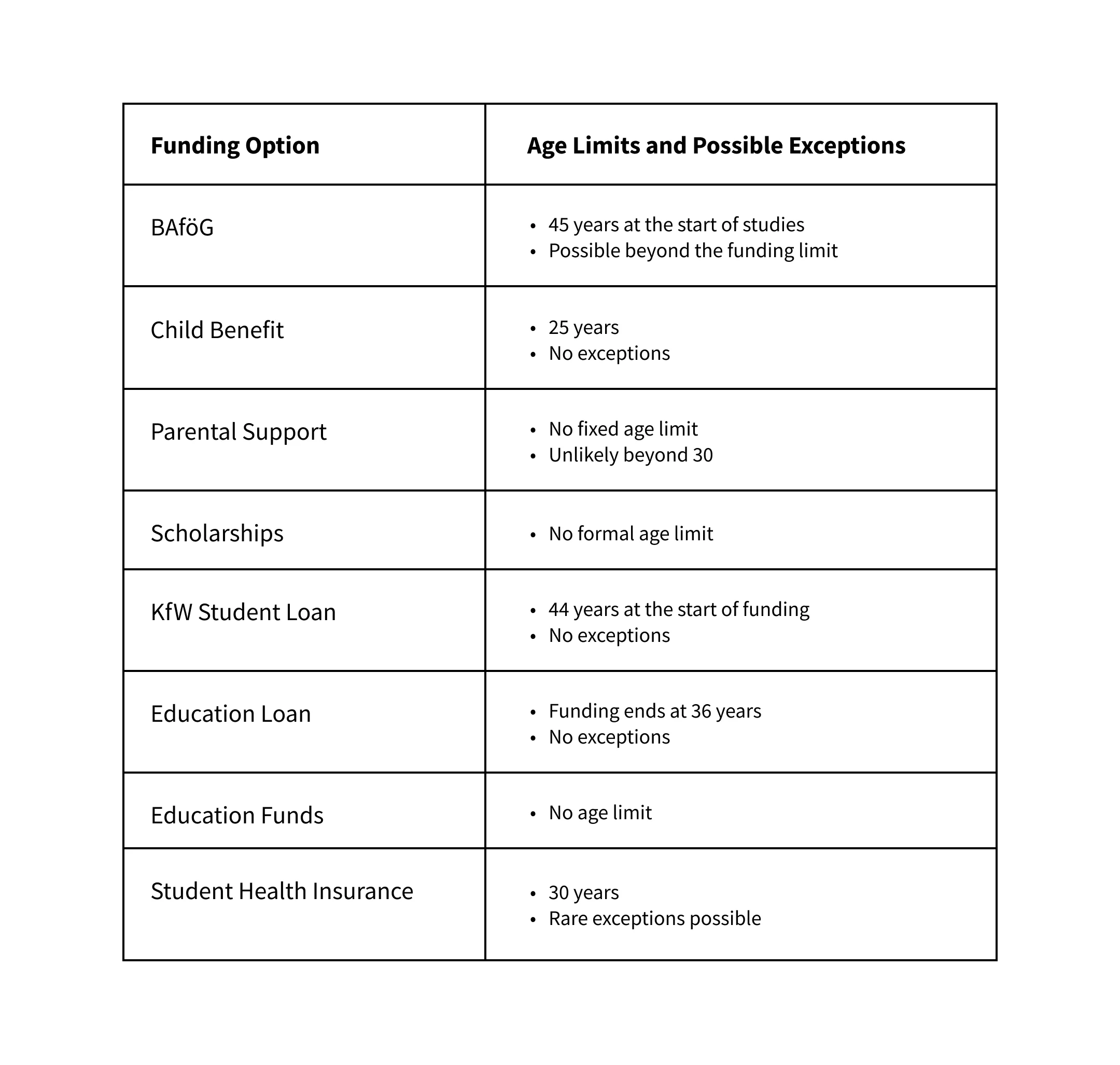
Study financing
How can I fund my studies?
A degree opens up incredible opportunities and allows you to steer your life and career in a direction that excites and fulfills you. It’s an investment in your future—but also a financial challenge that requires careful planning and organization. In addition to living expenses, CODE requires tuition fees, as we are a private university and do not receive government funding to offer lower semester fees.
We understand that tuition fees can be a major hurdle, which is why we want to support you in finding realistic solutions and a good path to finance your studies. Over the years, we’ve guided many students and gained valuable insights to help ease your concerns or uncertainties so you can focus on what really matters: learning and having fun.
Study financing options
In Germany, there are many ways to finance your studies—and they couldn’t be more diverse. Scholarships, for example, don’t require repayment, whereas student loans involve repaying the full amount with interest. At CODE, additional financing options are available. Each option has specific requirements and conditions, so it’s worth taking a closer look.
BAföG: Government-funded study support
BAföG is one of the best-known forms of study financing in Germany. It provides state funding for young people who need financial assistance because their families cannot cover their education costs. This support consists of a 50% interest-free loan and a government grant, meaning you only repay half the amount. Repayment begins no later than five years after graduation and is capped at €10,000.
Since the winter semester of 2024/25, the maximum BAföG rate for students living independently and without family insurance is €992. Calculating your BAföG entitlement can be complex, so we’ve partnered with meinBafög to help. Submit your BAföG application to your university’s BAföG office or the relevant student services organization.
Key requirements include:
- Enrollment at a state or state-recognized university like CODE
- Starting your studies before the age of 45
- Completing your degree within the standard study period
- No frequent course changes or study withdrawals
- Parental income below or slightly above the established thresholds
Scholarships
Scholarships are an attractive financing option as they don’t require repayment. Although scholarships are popular and competitive, there’s a wide variety of options with different criteria and requirements.
Contrary to popular belief, a perfect GPA isn’t always necessary. Passion for your field and how you express it in your motivation letter are often more important. Social engagement is also highly valued. Alongside well-known programs like the Germany Scholarship (Deutschlandstipendium), CODE also offers its own scholarships.

KfW student loan and education loan
Another financing option is a student or education loan. These loans provide monthly payouts rather than a lump sum, which must be repaid with interest. Loan amounts, interest rates, and repayment terms vary by provider.
The KfW student loan is the most popular option, available to students aged 18-44. It offers monthly payouts of €100 to €650, with repayment starting after graduation or a grace period of 18-23 months.
Additionally, the government’s education loan, offered by the Federal Office of Administration (BVA), is available to bachelor’s students from the third semester onward. This loan provides €100 to €300 monthly for up to 24 months, with repayment beginning four years after the first payout.
Study and education funds
Study and education funds "invest" in promising students. These funds provide monthly payouts to cover living and study expenses during your degree. Repayment is income-based once you start working, meaning high earners contribute more, while lower earners pay less. Repayments fund future students. The most well-known provider is Deutsche Bildung.
Partnered financing with Bcas
Starting in early 2025, we are partnering with Bcas, an innovative EdTech start-up dedicated to reducing socio-economic barriers in education. Their "Study now, pay later" model covers tuition fees for up to 18 months. Repayment is income-dependent, making it more flexible than traditional loans.
Self-funding with a part-time job
CODE is designed as a full-time program, it offers high flexibility in scheduling workshops, lectures, and project work, allowing you to find time for a job.
From day one at CODE, you gain practical skills that make job searching easier. Our partner network and start-up ecosystem can also help you find a suitable role. For students working part-time, consider remote and flexible options. Note: As a working student, you can work up to 20 hours per week during the semester and up to 40 hours during semester breaks.
Study financing options for students over 30
Funding your studies at a slightly older age can be more challenging, as some options may no longer be available. Here’s an overview of funding options and their age limits:

Financing for international students
Are you from abroad and looking to study at CODE Berlin? Germany offers several financing options for international students.
Our advice to you
We understand that financing a private university education like CODE can be challenging. That’s why we offer flexibility and support to make CODE as accessible as possible. A diverse student body is important to us, and we’ve seen many students successfully navigate funding opportunities and secure great jobs. If you have concerns, don’t hesitate to contact our Admissions Team—we’re here to help.
Questions?
We have the answers. Feel free to contact our admissions team via [email protected].
